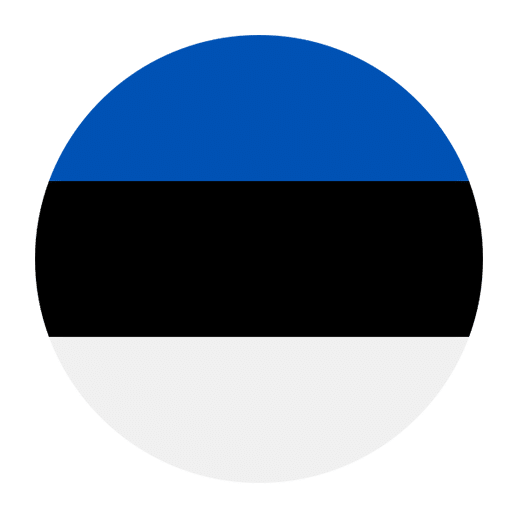Planning a trip to Estonia? Whether you’re exploring the medieval streets of Tallinn, the breathtaking landscapes of Lahemaa National Park, or the serene shores of Saaremaa, knowing some essential Estonian words can significantly enhance your travel experience. Estonia is a beautiful country with a rich cultural heritage, and although many Estonians speak English, making an effort to learn and use some basic Estonian phrases will surely be appreciated by the locals.
Here’s a comprehensive guide to essential Estonian words and phrases that will help you navigate through your trip seamlessly.
Greetings and Basic Phrases
A good start to any conversation is a friendly greeting. Here are some basic phrases to get you started:
– **Tere** (TE-re) – Hello
– **Tere hommikust** (TE-re HO-mi-kust) – Good morning
– **Tere päevast** (TE-re PÄ-vast) – Good afternoon
– **Tere õhtust** (TE-re ÖH-tust) – Good evening
– **Head aega** (HEAD AI-ga) – Goodbye
– **Palun** (PA-lun) – Please
– **Aitäh** (AI-täh) – Thank you
– **Jah** (YAH) – Yes
– **Ei** (AY) – No
– **Vabandust** (VA-ban-dust) – Excuse me / Sorry
Essential Questions
When traveling, you’ll often need to ask questions to find your way around or gather information. Here are some key question phrases:
– **Kus on…?** (KOOS on?) – Where is…?
– **Mis see on?** (MIS SE on?) – What is this?
– **Kui palju see maksab?** (KUI PA-lju SE MAK-sab?) – How much does this cost?
– **Kas te räägite inglise keelt?** (KAS te RÄÄ-gi-te ING-li-se KE-elt?) – Do you speak English?
– **Mis kell on?** (MIS KELL on?) – What time is it?
Directions and Transportation
Navigating a new place can be challenging, but these phrases will help you find your way:
– **Vasakule** (VA-sa-ku-le) – Left
– **Paremale** (PA-re-ma-le) – Right
– **Otsene** (OT-se-ne) – Straight
– **Buss** (BOOS) – Bus
– **Rong** (RONG) – Train
– **Taksod** (TAK-sohd) – Taxis
– **Lennujaam** (LEN-nu-jaam) – Airport
– **Raudteejaam** (RAUD-te-jaam) – Train station
– **Sadama** (SA-da-ma) – Port
Accommodation
Finding the right place to stay is crucial for a comfortable trip. Here are some helpful phrases:
– **Hotell** (ho-TELL) – Hotel
– **Külalistemaja** (KÜ-la-lis-te-MA-ja) – Guesthouse
– **Hostel** (HO-stel) – Hostel
– **Tuba** (TOO-ba) – Room
– **Vannituba** (VAN-ni-TOO-ba) – Bathroom
– **Broneerimine** (bro-NEE-ri-mi-ne) – Reservation
– **Voodikoht** (VOO-di-koht) – Bed
– **Hommikusöök** (HOM-mi-ku-SÖÖK) – Breakfast
Eating Out
Sampling the local cuisine is one of the joys of travel. Here’s how you can manage ordering food and drinks:
– **Restoran** (RES-to-ran) – Restaurant
– **Kohvik** (KOH-vik) – Café
– **Menüü** (me-NÜÜ) – Menu
– **Vesi** (VE-si) – Water
– **Õlu** (ÖH-lu) – Beer
– **Vein** (VAYN) – Wine
– **Kohv** (KOHV) – Coffee
– **Arve, palun** (AR-ve, PA-lun) – The bill, please
– **Kas teil on taimetoidu menüü?** (KAS teil on TAI-me-TOI-du me-NÜÜ?) – Do you have a vegetarian menu?
Shopping
If you’re planning to do some shopping, these phrases will be handy:
– **Pood** (POOD) – Shop
– **Turg** (TOORG) – Market
– **Pank** (PANK) – Bank
– **Kaart** (KAART) – Card
– **Sularaha** (SU-la-ra-ha) – Cash
– **Allahindlus** (AL-la-HIND-lus) – Discount
– **Kas ma saan selle proovida?** (KAS ma SAAN SEL-le PROO-vi-da?) – Can I try this on?
– **Kas teil on seda suuremas/väiksemas suuruses?** (KAS teil on SE-da SUU-re-mas/VÄIK-se-mas SUU-ru-ses?) – Do you have this in a larger/smaller size?
Emergencies
Hopefully, you won’t need to use these phrases, but it’s good to know them just in case:
– **Abi!** (A-bi!) – Help!
– **Politsei** (po-li-TSEI) – Police
– **Arst** (ARST) – Doctor
– **Haigla** (HAI-gla) – Hospital
– **Apteek** (AP-teek) – Pharmacy
– **Ma olen eksinud** (ma O-len EK-si-nud) – I am lost
– **Ma vajan arsti** (ma VA-yan AR-sti) – I need a doctor
– **Kas te saate mind aidata?** (KAS te SA-te mind AI-da-ta?) – Can you help me?
Numbers
Knowing numbers can be incredibly useful, whether you’re shopping, dining, or just getting around:
– **Üks** (ÜKS) – One
– **Kaks** (KAKS) – Two
– **Kolm** (KOLM) – Three
– **Neli** (NE-li) – Four
– **Viis** (VIIS) – Five
– **Kuus** (KUUS) – Six
– **Seitse** (SEIT-se) – Seven
– **Kaheksa** (KA-HEK-sa) – Eight
– **Üheksa** (Ü-HEK-sa) – Nine
– **Kümme** (KÜM-me) – Ten
– **Sada** (SA-da) – Hundred
– **Tuhat** (TU-hat) – Thousand
Days of the Week
Understanding the days of the week will help you plan your activities better:
– **Esmaspäev** (ES-mas-PÄ-ev) – Monday
– **Teisipäev** (TEI-si-PÄ-ev) – Tuesday
– **Kolmapäev** (KOL-ma-PÄ-ev) – Wednesday
– **Neljapäev** (NEL-ja-PÄ-ev) – Thursday
– **Reede** (REE-de) – Friday
– **Laupäev** (LAU-pä-ev) – Saturday
– **Pühapäev** (PÜ-ha-PÄ-ev) – Sunday
Months of the Year
Knowing the months can also be helpful, especially if you’re planning to stay for an extended period:
– **Jaanuar** (JAA-nu-ar) – January
– **Veebruar** (VEE-bru-ar) – February
– **Märts** (MÄRTS) – March
– **Aprill** (A-pril) – April
– **Mai** (MAI) – May
– **Juuni** (JUU-ni) – June
– **Juuli** (JUU-li) – July
– **August** (AU-gust) – August
– **September** (SEP-tem-ber) – September
– **Oktoober** (OK-too-ber) – October
– **November** (NO-vem-ber) – November
– **Detsember** (DET-sem-ber) – December
Common Adjectives
Describing things accurately can make your communication much smoother. Here are some common adjectives:
– **Hea** (HE-a) – Good
– **Halb** (HALB) – Bad
– **Suur** (SUUR) – Big
– **Väike** (VÄI-ke) – Small
– **Kallis** (KAL-lis) – Expensive
– **Odav** (O-dav) – Cheap
– **Ilus** (I-lus) – Beautiful
– **Kole** (KO-le) – Ugly
Weather Phrases
Discussing the weather is a common topic and can be quite useful:
– **Ilm** (ILM) – Weather
– **Soe** (SOE) – Warm
– **Külm** (KÜLM) – Cold
– **Päike** (PÄI-ke) – Sun
– **Vihm** (VIHM) – Rain
– **Lumi** (LU-mi) – Snow
– **Pilvine** (PIL-vi-ne) – Cloudy
– **Tuuline** (TUU-li-ne) – Windy
Conclusion
Learning these essential Estonian words and phrases will not only help you navigate your trip more smoothly but also enrich your travel experience by allowing you to connect more deeply with the local culture and people. While many Estonians speak English, making the effort to learn their language will be greatly appreciated and can lead to more meaningful interactions.
So, whether you’re visiting the historic sites, enjoying the natural beauty, or indulging in the local cuisine, these words and phrases will surely come in handy. Tere tulemast Eestisse! (Welcome to Estonia!)

